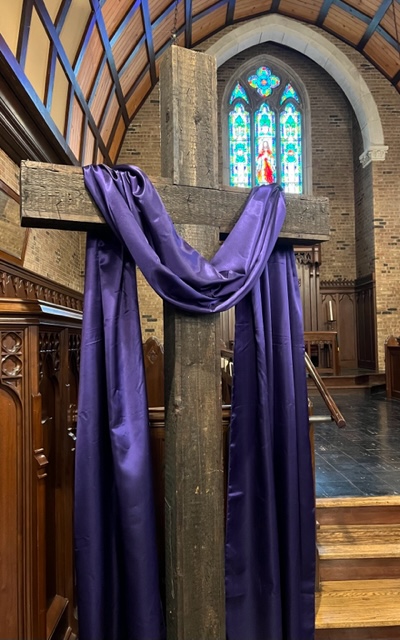We are spending this Season of Easter—this season of new life—focusing on healing the wounds from religious trauma. What is religious trauma? Last week I defined it as any theology, teaching, or practice that leads to alienation from God, self, and/or others.
These wounds are long-lasting. They have caused heart-breaking damage. And they are everywhere. I promise you, once you start looking, the scales will fall from your eyes and you will see these wounds and scars all around you.
Religious trauma has caused rifts in friendships and families. It has planted the seeds of shame deep within tender souls and has kept people from being at peace in their own skins. It has kept people from knowing and internalizing the love of God. Because what they have known and internalized instead is a god who says they can never be enough. Never good enough, never worthy enough, never loveable enough. Never, never, never enough.
Some of these people wanted—and maybe even still want—to have a relationship with God. They want to pray. They want to delight in scripture. They want to worship. They want to be part of a Christian community. They want to bear the name of Christ. But even if they didn’t or don’t want these things, my question is: what gives religious people the right to think we can do this kind of harm to any of God’s children?
As I read Genesis 1:27, all of humankind has been created in God’s image. Not just those we consider good enough. Not just those who think like we think or look like we look or move through the world like we move. And yet, Bible thump after Bible thump, sideways glance after sideways glance, tsk after tsk, the Church has perpetuated religious trauma. We have said words and done deeds that have alienated—divided, estranged, severed—people from God, from themselves, and from others.
Does this sound like Good News proclamation to you? Step back. Just for a minute. Step back and ask yourself: Does this sound like Good News proclamation to you? Lord, have mercy. It does not sound like Good News proclamation to me.
Something is wrong. Something is awry. Something is distorted.
Jesus said, “You will recognize them by their fruits…Every healthy tree bears good fruit, but the diseased tree bears bad fruit” (Matthew 7:16-17, ESV). I fear we have been bearing bad fruit. But people, Jesus wants us to bear good fruit. Jesus wants us to bring others to him—not alienate them, not estrange them (Luke 18:40). Jesus calls his disciples (that means you and me) to move about the world doing healing work—not wounding work, not traumatizing work (Matthew 10:1). Jesus asks us to feed his lambs and tend his sheep—not throw them to the wolves (John 20:15-16).
Christians, this is a call to repentance. This is a call to change. That is why we are doing this “Healing Waters” series. Because I believe we have work to do, Christians. Healing work. Loving work. In the name of Jesus.
I’ll see you Sunday.
Jennie
P. S. Remember, we are having only one worship service this Sunday, April 30 beginning at 10:00 a.m.
Worship at 10:00 a.m.
On-site at 302 South Main Street Eureka, Illinois
Online at eurekachristian.org/worship-online or facebook.com/eurekacc/live




